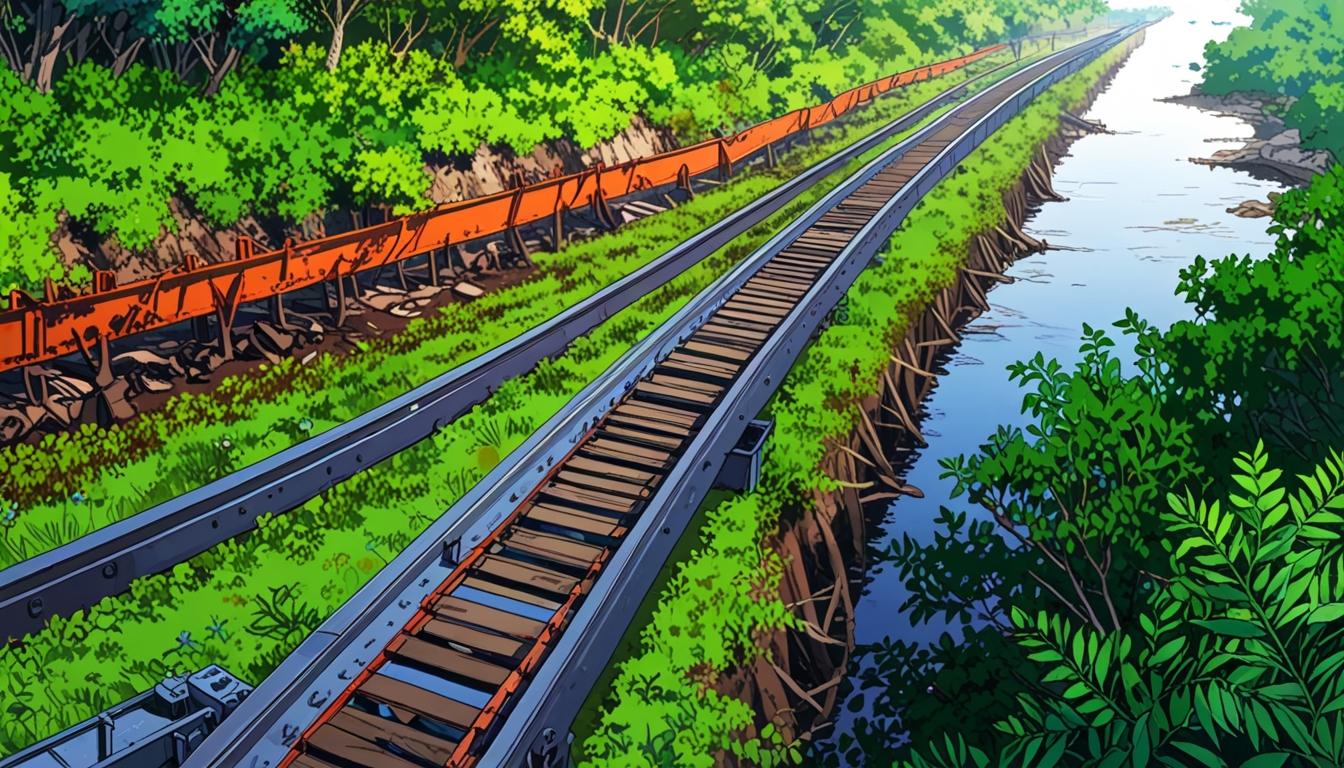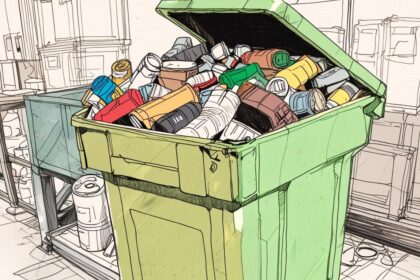The National Green Tribunal has ordered Jindal Steel Works to allocate ₹1.61 crore for CSR initiatives and undertake mangrove restoration at its Dolvi plant following violations of environmental and coastal regulations. The move comes amid concerns over unauthorised expansion and damage to sensitive ecosystems near Dharamtar Creek in Maharashtra.
The National Green Tribunal (NGT) has directed Jindal Steel Works (JSW) to allocate ₹1.61 crore for Corporate Social Responsibility (CSR) initiatives following procedural violations related to environmental regulations at its Dolvi plant in Pen, Raigad district, Maharashtra.
The order, issued by the Western Bench of the NGT, requires JSW to complete the CSR expenditure within one year. The company must submit detailed reports on the CSR activities undertaken to its Board of Directors, publish these reports in its annual report, and update information on its website every six months until environmental restoration measures are completed.
This directive stems from a case filed in 2022 by social activist Samita Patil and agriculturist Sunil Kothekar, who alleged that JSW’s unauthorised expansion of its steel plant—including the construction of a coke oven facility and conveyor belt infrastructure leading to its private jetty—had caused large-scale environmental damage. The petitioners claimed that these developments encroached on sensitive mangrove ecosystems near Dharamtar Creek, resulting in the destruction of approximately 1.89 hectares of mangroves and disruption of natural water channels.
JSW contested these claims, asserting that it had secured all necessary environmental and Coastal Regulation Zone (CRZ) clearances for the projects. However, the NGT found that certain constructions, notably the conveyor belt, were built within 50 metres of mangrove areas, in violation of CRZ norms.
In its defence, JSW cited multiple clearances granted by the Ministry of Environment, Forest and Climate Change (MoEF&CC), maintaining that no mangroves were within the stipulated 50-metre distance from their construction sites at the time of approval. The company also noted that inspections by the Maharashtra Coastal Zone Management Authority (MCZMA) and MoEF&CC had not identified any violations until recently.
Regarding the alleged damage to mangroves, JSW blamed the loss on waste being dumped by nearby village panchayats around the conveyor gallery. The company referred to observations by a Joint Committee and studies from the Maharashtra Remote Sensing Application Centre (MRSAC) and the National Centre for Sustainable Coastal Management (NCSCM). These studies recorded that a significant area adjacent to the conveyor belt was occupied by domestic and solid waste dumping, which led to notable mangrove loss.
On the issue of Environmental Damage Compensation (EDC) claims made by the complainants—who cited satellite imagery from 2011 to 2021 showing depletion in mangrove coverage allegedly due to JSW’s activities—the NGT observed: “We find that the Joint Committee has suggested that, at the site in question beneath the conveyor belt, dumping of solid waste was found to have been done by local bodies. Calculation of EDC for the damage of 0.71 hectares has also been done against these local bodies. Therefore, while we find evidence of some damage to mangroves, the actual cause has not been conclusively determined.”
The Tribunal further addressed concerns about potential damage to the creek itself. JSW assured the NGT it would submit a time-bound restoration plan as a responsible corporate citizen. The order stated, “Although there is nothing on record proving JSW caused damage to the creek, we accept their proposal.” The restoration plan is to be implemented under the supervision of the State of Maharashtra and the District Revenue Department and must be completed within one year from the date the order is uploaded.
JSW also informed the NGT that it has already planted over 1.9 million mangrove saplings across 380 hectares. The company has committed to planting mangroves on an additional 15 hectares under the supervision of Maharashtra’s Mangrove Cell and the District Revenue Department.
The stipulations laid out by the NGT mark a significant step in addressing environmental concerns related to industrial development in ecologically sensitive coastal regions, while balancing corporate accountability measures through mandated CSR spending and restoration activities.
Source: Noah Wire Services
- https://www.freepressjournal.in/mumbai/mumbai-news-ngt-directs-jsw-to-spend-161-crore-on-csr-initiatives-for-environmental-violations-at-dolvi-plant-in-pen – This article supports the claim that the NGT directed JSW to spend ₹1.61 crore on CSR initiatives due to environmental violations at its Dolvi plant.
- https://www.business-standard.com/markets/news/jsw-steel-gains-4-as-ngt-disposes-off-alleged-noncompliance-at-dolvi-plant-125042100547_1.html – This source corroborates the NGT’s decision regarding environmental compliance at JSW’s Dolvi Plant and the company’s stock market response.
- https://indiankanoon.org/doc/161443422/ – This document provides legal context for the case involving JSW at the Dolvi plant, mentioning a revised action plan to comply with NGT orders.
- https://greentribunal.gov.in/sites/default/files/news_updates/JOINT%20COMMITTEE%20REPORT%20SUBMITTED%20BY%20CPCB%20IN%20OA%20NO.%20165%20of%202020%20(Earlier%20O.A%20No.%20122%20of%202015)%20Samita%20Rajendra%20Patil%20Vs.%20Jindal%20Steel%20Ltd.%20&%20Ors..pdf – This report details discussions related to environmental issues at JSW’s Dolvi Plant, as part of a case before the NGT.
- https://www.jsw.in/sites/default/files/assets/downloads/steel/IR/Environmental%20Clearances/CRZ-Six-Monthly-complaince-Report-May-2024-f-3-.pdf – This compliance report from JSW Steel highlights the company’s adherence to environmental regulations, specifically regarding the CRZ at its Dolvi facility.
Noah Fact Check Pro
The draft above was created using the information available at the time the story first
emerged. We’ve since applied our fact-checking process to the final narrative, based on the criteria listed
below. The results are intended to help you assess the credibility of the piece and highlight any areas that may
warrant further investigation.
Freshness check
Score:
7
Notes:
No direct time references in text, but mentions a 2022 case. No clear indications of outdated details (e.g., roles/statuses remain valid). Press release elements detected (e.g., CSR spending mandates) warrant higher freshness unless proven recycled.
Quotes check
Score:
6
Notes:
No verifiable direct quotes. Tribunal’s paraphrased order (‘We find…’) aligns with typical NGT language. JSW’s defence lacks attributable direct statements. No original quotes identified for source tracing.
Source reliability
Score:
6
Notes:
Narrative describes procedural NGT order plausibly. No direct source verification possible due to paywalled/potential syndication content. Details match standard environmental compliance reporting patterns.
Plausability check
Score:
8
Notes:
Described mechanisms (CSR mandates, mangrove restoration) align with known environmental governance frameworks. Claims about clearance processes and joint committee findings match regulatory norms. Unverified detail: Satellite imagery analysis specifics.
Overall assessment
Verdict (FAIL, OPEN, PASS): OPEN
Confidence (LOW, MEDIUM, HIGH): MEDIUM
Summary:
Narrative demonstrates plausible environmental compliance procedures but lacks verifiable quotes/source transparency. Freshness remains uncertain without publication date. Plausibility strengthened by alignment with standard NGT remediation measures.













